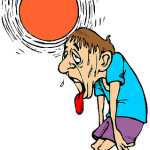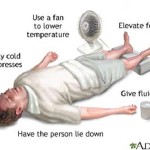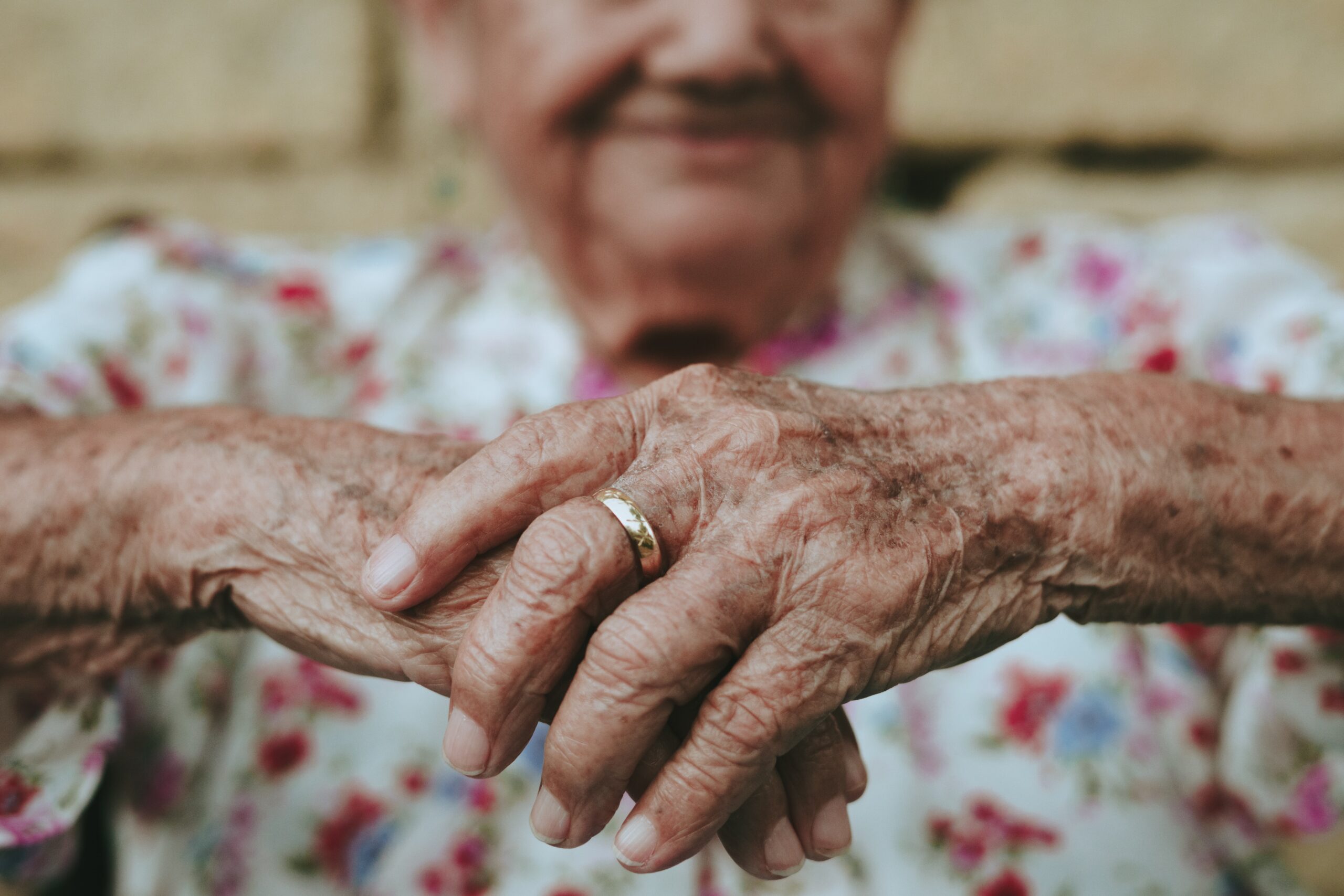Here at Health Care Associates/Community Care Givers we serve a wide range of clientele from infants to octogenarians and beyond and summer’s heat affects us all, but many times those in their 70’s, 80’s and 90’s still living independently in their own homes are more susceptible to the dangers of heat and humidity without being aware of it until it’s too late. If you are one of these persons or have a parent, Grandparent or neighbor in this age range, I thought I would share some tips on recognizing the warning signs and being able to enjoy summer while staying safe.
Hyperthermia, which is an abnormally high body temperature, is caused by a failure of the heat-regulating mechanisms of the body to deal with the heat coming from the environment. Older adults as well as those with chronic medical conditions are particularly susceptible to hyperthermia, and are at a high risk for heat-related death. Heat fatigue, heat syncope (sudden dizziness after prolonged exposure to the heat), heat cramps, heat exhaustion, and heat stroke are all forms of hyperthermia.
The following factors may increase the risk of hyperthermia:
- Dehydration
- Alcohol use
- High blood pressure or other health conditions that require changes in diet.
- Heart, lung, and kidney diseases, as well as any illness that causes general weakness or fever.
- Use of multiple medications.
- Reduced perspiration caused by medications.
- Age related changed to the skin such as poor blood circulation and inefficient sweat glands.
- Being substantially overweight or underweight.
Lifestyle factors can also increase the risk of hyperthermia and include:
- Not drinking enough fluids
- Living in housing without air condition
- Lack of mobility and access to transportation
- Overdressing
- Visiting overcrowded places
- Not understanding how to respond to the weather conditions.
There are some things you can do to help prevent hyperthermia. Older people, particularly those with underlying chronic medical conditions, should stay indoors on hot, humid days – especially when an air pollution alert is in effect. People without air conditioners should either go to a place that has air conditioning such as a shopping mall, movie theatre, senior center or library or to a cooling center which is sometimes set up by a local public health agency, religious organization or social service organization.
If you suspect someone is suffering from a heat related illness:
- Get the person out of the heat and into a cool place, and urge them to lie down.
- Apply a cold, wet cloth to the wrists, neck, armpits, and/or groin. These are places where blood passes close to the surface of the skin, and the cold cloths can help cool the blood.
- Encourage the individual to shower, bathe, or sponge off with cool water or help them to do so.
- If the person can swallow safely, offer fluids such as water, fruit, and vegetable juices, but avoid alcohol and caffeine.
- If you suspect heat stroke, call 911 IMMEDIATELY.
Heat stroke is a life-threatening form of hyperthermia. It occurs when the body is overwhelmed by heat and is unable to control its temperature. Heat stroke occurs when someone’s body temperature increases significantly (generally above 104 degrees Fahrenheit) and has symptoms such as mental status changes like confusion or combativeness, strong rapid pulse, lack of sweating, dry flushed skin, faintness, staggering or coma. SEEK IMMEDIATE EMERGENCY MEDICAL ATTENTION FOR A PERSON WITH ANY OF THESE SYMPTOMS, ESPECIALLY AN OLDER ADULT.
To your good health,
Barb



